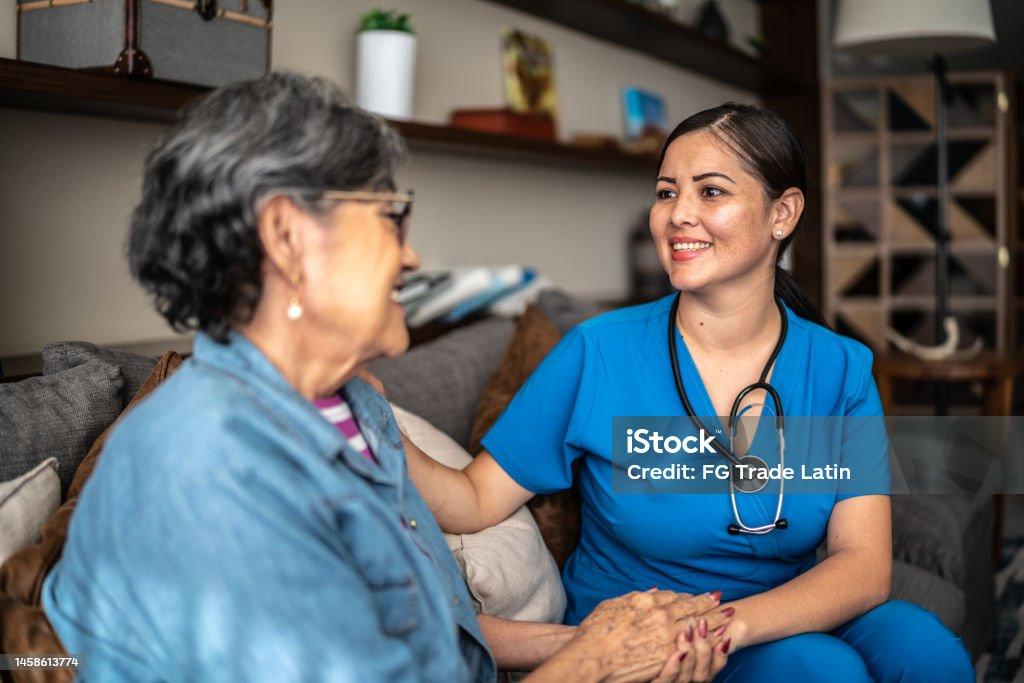A stroke occurs due to the blockage of blood flow to the brain, often resulting from a broken blood vessel or a blood clot. A stroke can lead to other health issues that require time and patience to heal. The main focus during stroke recovery is enhancing the affected person’s physical health and brain functions. Home care Huntsville experts share ways to help your aging loved one during stroke recovery.
Accompany Your Loved One at the Hospital
Mostly, stroke survivors need to spend quite some time in a hospital. During the recovery, ensure your loved one gets enough emotional and social support. Visit them regularly and continue to talk normally. Even if your loved one cannot communicate properly, they can still understand your message.
Educate Yourself on Stroke and Its Effects
Before diving into the caregiving process, take the time to educate yourself about strokes and their potential effects. Understanding the type of stroke, its impact on the brain, and potential complications will empower you to provide more informed and effective care. Knowledge is key to anticipating challenges and tailoring your caregiving approach to meet your loved one’s needs.
Follow the Directions of Healthcare Professionals
Listening to your loved one’s doctor, nurses, and therapists is crucial. Family caregivers may find it helpful to carry a notebook to note down instructions. Follow exercise, therapy, medication, and nutrition recommendations to allow your loved one to recover as quickly as possible. Make sure to talk to the doctor before using any supplements.
Reduce the Factors that Lead to Strokes
People who have survived a stroke are at a high risk of experiencing another one. Family caregivers should help their aging loved one stay healthy by eating a low-sodium, low-fat diet that contains lots of fruits, vegetables, whole grains, and proteins. Make sure your loved one isn’t exposed to secondhand smoke, and discourage them from smoking and drinking alcoholic beverages. Once your senior loved one regains physical health, help them follow a gentle cardio exercise.
Implement a Structured Rehabilitation Routine
Consistency is key when it comes to stroke recovery. Establish a structured daily routine that incorporates prescribed exercises and therapies. This routine should be designed in collaboration with healthcare professionals and adjusted as needed based on your loved one’s progress. Regular physical and occupational therapy sessions can aid in rebuilding strength, coordination, and daily living skills.
Monitor Medications and Follow Medical Advice
Adhering to prescribed medications and closely following medical advice is paramount in stroke recovery. Keep track of medication schedules, attend follow-up appointments, and promptly address any concerns or changes in your loved one’s condition. Open communication with the healthcare team ensures that adjustments can be made as necessary to optimize the recovery process.
Understand Mood Swings
Many elderly stroke survivors experience anger, frustration, anxiety, and sadness. Be patient and try to understand the reasons your loved one has outbursts. Provide your loved one sympathy and empathize with their emotions, but be supportive and stay calm because such behaviors are not in your loved one’s control.
Make the Home Safer
Following a stroke, seniors typically face challenges with their motor skills, so you may have to make some changes in the home setting and surroundings of your loved one. Consider getting your loved one utensil holders to allow them to eat meals easily, and make sure their clothing has elastic or Velcro closures so they can get dressed with greater ease. Remove and clutter and secure rigs to the floor with rug glue or tape to lower the risk of falls, add an anti-slip mat in the bathroom, and install grab bars.
Plan for the Long Term
Stroke recovery is often a gradual and ongoing process. Plan long-term by reassessing your loved one’s needs and adjusting your caregiving approach accordingly. Stay informed about new therapies or technologies that may benefit their recovery journey.
In conclusion, the journey of caring for a senior loved one during stroke recovery is both challenging and rewarding. With knowledge, support, and adaptability, you can make a meaningful impact on their rehabilitation. For additional assistance tailored to the unique needs of your loved ones in their recovery process, consider exploring the comprehensive services offered by Huntsville Home Care. Our dedicated team is committed to providing compassionate and specialized care, ensuring your loved one receives the support necessary for a successful recovery journey.



